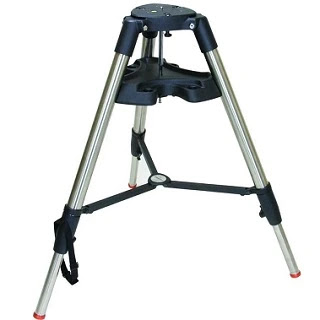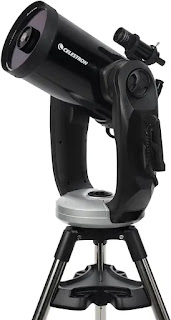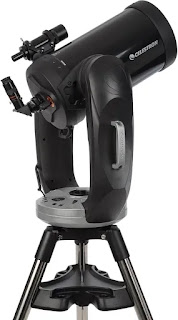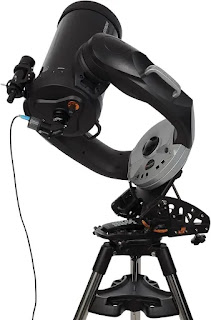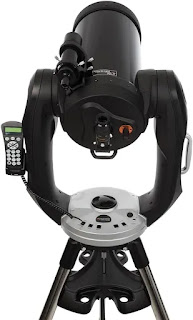Binocular tripods are indispensable tools for outdoor enthusiasts who wish to elevate their viewing experience. Whether you're into birdwatching, stargazing, or sports events, binocular tripods provide the stability and support needed to reduce hand fatigue and capture crisp, clear images.
In this guide, we will
delve into the specifications, key features, benefits, and pros and cons of
binocular tripods.
See also:
Specifications:
1. Material:
Binocular tripods are typically crafted from lightweight yet sturdy materials,
such as aluminum or carbon fiber, ensuring durability and portability.
2. Height:
Tripods are available in various sizes, often featuring adjustable legs to
accommodate different viewing heights.
3. Weight
Capacity: The tripod's weight capacity is crucial, as it determines whether
it can support the combined weight of your binoculars and any additional
accessories.
4. Compatibility:
Binocular tripods are designed to be versatile, with adjustable mounting plates
to accommodate various binocular sizes and models.
Key Features:
1. Stability:
Binocular tripods offer unwavering stability, minimizing vibrations and
enhancing the clarity and detail of your observations.
2. Pan and
Tilt Head: Many tripods come equipped with a pan and tilt head, allowing
for smooth and precise adjustments, especially when tracking moving subjects.
3. Quick-Release
Plates: Quick-release plates facilitate easy attachment and removal of your
binoculars from the tripod, saving time and effort.
4. Portability:
Some tripods are designed to be compact and lightweight, making them effortless
to carry during outdoor adventures.
5. Adjustable
Leg Locks: Tripods often feature adjustable leg locks, allowing you to
change the height and angle quickly to suit your viewing needs.
6. 360-Degree
Rotation: Select tripods provide full 360-degree rotation capability,
ensuring you can track subjects from any angle.
7. Rubberized
Feet: Many tripods are equipped with rubberized feet for enhanced stability
and to prevent slippage on various surfaces.
Benefits:
1. Enhanced
Viewing: Binocular tripods reduce image shake, offering sharper and clearer
observations, especially at higher magnifications.
2. Comfort:
With reduced hand and arm fatigue during extended viewing sessions, outdoor
experiences become more enjoyable.
3. Versatility:
Binocular tripods are multipurpose and can be used for various activities,
including wildlife observation, astronomy, and photography.
4. Improved
Photography: For photographers, binocular tripods provide the stability
required for capturing sharp images and videos, even in low light conditions.
5. Hands-Free
Viewing: Enjoy hands-free viewing, allowing you to focus on your subject
without the need to hold your binoculars continually.
6. Precise
Tracking: Key features like pan and tilt heads and 360-degree rotation
enable precise tracking of moving objects or celestial bodies.
7. Longer
Observations: Binocular tripods allow for extended and relaxed viewing
sessions, especially when observing celestial objects like stars and planets.
Pros & Cons:
Stability:
Binocular tripods offer unparalleled stability, ensuring that your binoculars
remain steady for an extended period.
Improved
Image Quality: With reduced vibrations, you'll experience improved image
quality, making it easier to spot distant objects or fine details.
Hands-Free
Viewing: You can enjoy hands-free viewing, allowing you to focus on the
subject without the need to hold your binoculars.
Cons:
Added Bulk:
While they provide stability, tripods can be bulky and less convenient to
transport compared to handheld binoculars.
Setup Time: Setting up a tripod takes more time than simply holding binoculars in your hands, which might not be ideal for spontaneous observations.
Frequently Asked Questions (FAQs):
Q. Why do I need a tripod for my binoculars?
Binocular tripods provide stability, which is crucial for
steady and prolonged observation. They eliminate hand tremors and make it
easier to focus on distant objects, resulting in a clearer and more enjoyable
viewing experience.
Q. What type of binoculars are compatible with tripods?
Most binoculars can be mounted on a tripod, but it's
essential to ensure they have a threaded socket for attachment. Higher
magnification binoculars (10x and above) benefit the most from tripod use.
Q. How do I attach my binoculars to a tripod?
To attach binoculars to a tripod, you'll need a binocular
adapter or a tripod adapter. These devices secure your binoculars to the
tripod's platform or head, keeping them stable and preventing wobbling.
Q. Are binocular tripods portable for outdoor use?
Many binocular tripods are designed with portability in
mind. Look for lightweight and collapsible models if you plan to use them for
outdoor activities like birdwatching, stargazing, or sports events.
Q. Can I adjust the height of a binocular tripod?
Yes, most binocular tripods come with height-adjustable legs
or a central column. This flexibility allows you to customize the tripod's
height according to your preferences and viewing conditions.
Final Thoughts:
Binocular tripods are essential accessories for anyone who
enjoys long-duration observations through binoculars. They provide stability,
reduce hand fatigue, and enhance the viewing experience, whether you're
birdwatching, stargazing, or enjoying a sports event. Choosing a tripod that
suits your needs and is compatible with your binoculars will greatly improve
your outdoor adventures.
Call to Action:
If you're ready to take your binocular viewing to the next level, consider investing in a high-quality binocular tripod. Browse our selection of binocular tripods and adapters to find the perfect match for your outdoor activities. Say goodbye to shaky hands and hello to clear, steady views!

